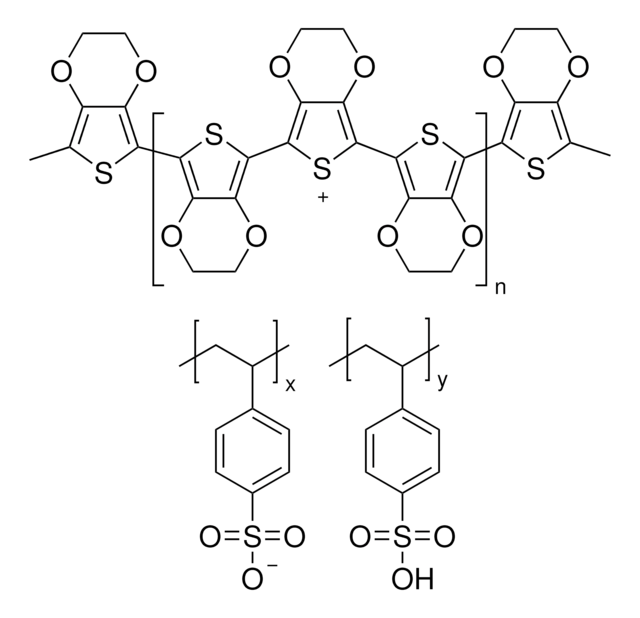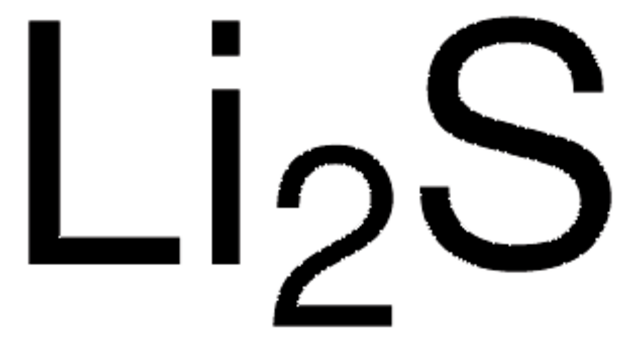203645
Lithium fluoride
powder, <100 μm, ≥99.98% trace metals basis
Synonym(s):
Fluorolithium
About This Item
Recommended Products
Assay
≥99.98% trace metals basis
form
powder
greener alternative product characteristics
Design for Energy Efficiency
Learn more about the Principles of Green Chemistry.
sustainability
Greener Alternative Product
impurities
≤200.0 ppm Trace Metal Analysis
particle size
<100 μm
bp
1673 °C/1 atm (lit.)
mp
845 °C (lit.)
solubility
aqueous acid: slightly soluble(lit.)
density
2.64 g/mL at 25 °C (lit.)
greener alternative category
SMILES string
[Li+].[F-]
InChI
1S/FH.Li/h1H;/q;+1/p-1
InChI key
PQXKHYXIUOZZFA-UHFFFAOYSA-M
Looking for similar products? Visit Product Comparison Guide
General description
Application
It can be used as an electrolyte additive to protect the lithium metal electrode, which improves the stability and reversibility of the battery. The partially soluble LiF forms a thin coating over the surface of lithium and stabilizes the SEI layer.
It can also be used as catalyst support in the preparation of carbon nanofibers by a catalytic chemical vapor deposition method.
Features and Benefits
- High mechanical strength
- Wide electrochemical stability window
- Low calculated barriers toLi diffusion
Signal Word
Warning
Hazard Statements
Precautionary Statements
Hazard Classifications
Acute Tox. 4 Oral - Eye Irrit. 2
Supplementary Hazards
Storage Class Code
13 - Non Combustible Solids
WGK
WGK 2
Flash Point(F)
Not applicable
Flash Point(C)
Not applicable
Personal Protective Equipment
Choose from one of the most recent versions:
Already Own This Product?
Find documentation for the products that you have recently purchased in the Document Library.
Customers Also Viewed
Articles
Professor Gogotsi and Dr. Shuck introduce MXenes: a promising family of two-dimensional materials with a unique combination of high conductivity, hydrophilicity, and extensive tunability.
Research and development of solid-state lithium fast-ion conductors is crucial because they can be potentially used as solid electrolytes in all-solid-state batteries, which may solve the safety and energy-density related issues of conventional lithium-ion batteries that use liquid (farmable organic) electrolytes.
Our team of scientists has experience in all areas of research including Life Science, Material Science, Chemical Synthesis, Chromatography, Analytical and many others.
Contact Technical Service










